
Australia to Antarctica: travel guide for explorers
For travellers who yearn to see the far-flung corners of the world, an Australia to Antarctica cruise is the ultimate
Svalbard is a Norwegian archipelago in the High Arctic between mainland Norway and the North Pole, also know as Spitsbergen. A destination of a lifetime, our expeditions to Svalbard connect you to the majesty of this Arctic wilderness, where dramatic fjords, rugged mountain ranges and a fossil-rich polar desert await.
Overhead, puffins, guillemots and other native Svalbard avian circle, commanding your attention, while the scree slopes house the island’s largest little auk colony. Witness sea walruses puncturing the ice, beluga whales breaching or a fluffy Arctic fox. Svalbard is the kingdom of the polar bear – witness one of these majestic, elusive creatures if you’re lucky. All leave a lasting impression.
The polar summer spans from May to September, where the Midnight Sun’s beautiful colours and contrasts adds an extra dimension to Svalbard’s glaciers, majestic mountains and Arctic tundra. This is the best time to enjoy outside exploration and take in this frozen land.
Svalbard is large and diverse, showcasing nature’s surprisingly rich and extremely varied landscapes. Life in Longyearbyen, Svalbard’s capital city, may be perceived as harsh, but for those fortunate to live here, it’s hard to imagine living anywhere else. Its inhabitants strive to live as one with nature, working in harmony to uphold their unique way of life throughout the enormous seasonal variations in temperature, light and darkness.
Home > Destinations > Ross Sea & East Antarctica Cruises & Expeditions
Embark on an odyssey that traces the footsteps of legends like Scott, Shackleton and Mawson, as you navigate through the icy realms of the Ross Sea, Commonwealth Bay and the enigmatic coast of East Antarctica on a small, purpose-built expedition ship.
In this remote and seldom-travelled region, prepare to uncover the secrets of history hidden within the iconic huts of explorers past. Brace yourself for tales of extraordinary endurance against the harshest elements, and bear witness to the breathtaking majesty of Antarctic ice shelves that seem to defy belief.
But that’s just the beginning. Be entranced by the graceful flight of wandering albatross, revel in the playful antics of sea lion harems and yellow-eyed penguins, and if you’re lucky, spot orcas and emperor penguins amidst the vast expanse of pack ice. Your adventure of a lifetime awaits!
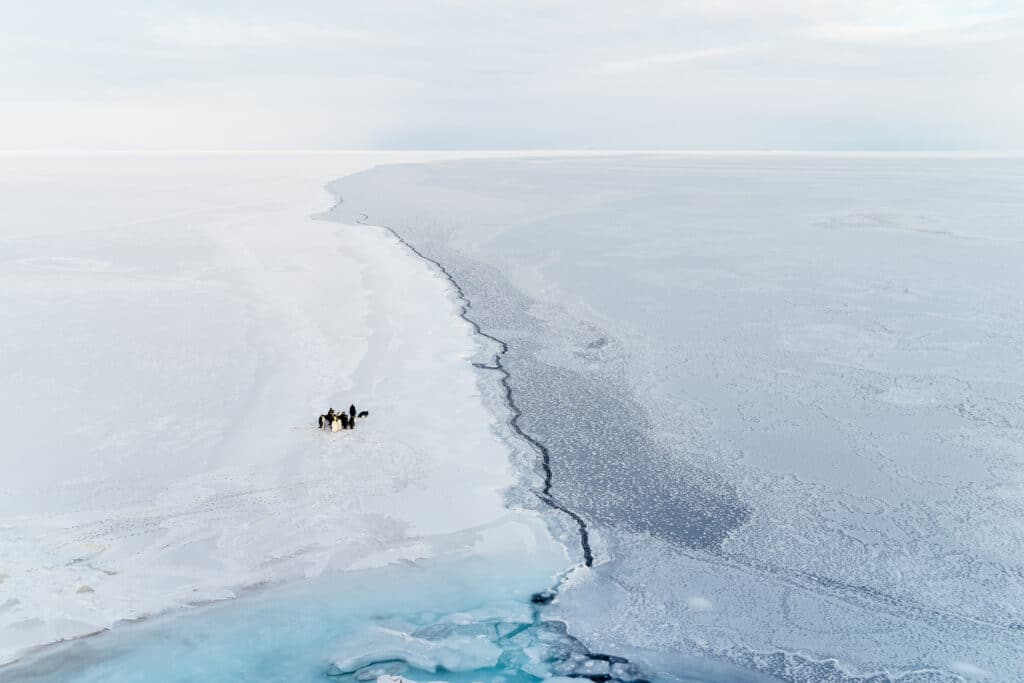
Epic Antarctica: Crossing the 7th Continent
Expedition
DURATION
34 Days
FROM
USD $35,036.00
Nestled within the Antarctic continent lies a realm of pristine wilderness and unparalleled beauty – the Ross Sea and East Antarctica. This remote and scarcely touched region stretches across the southernmost reaches of the planet, bordered by the icy expanse of the Antarctic continent to the south and the towering peaks of the Transantarctic Mountains to the west. Here, where the Antarctic ice sheet meets the Southern Ocean, an otherworldly landscape of towering icebergs, expansive ice shelves, and vast stretches of sea ice unfolds.
The Ross Sea, with its crystalline waters and towering ice formations, serves as the gateway to this majestic realm. Named after the British explorer Sir James Clark Ross, who first discovered its icy waters in the 19th century, the Ross Sea is renowned for its rich biodiversity and historical significance. Along its shores, historic huts and remnants of early Antarctic expeditions stand as testament to the bravery and determination of the explorers who ventured into this frozen wilderness.
To the east lies East Antarctica, a vast and enigmatic landmass that encompasses nearly two-thirds of the Antarctic continent. Here, the landscape is dominated by immense ice sheets and glaciers, punctuated by towering mountain ranges and deep fjords. Despite its harsh and inhospitable environment, East Antarctica teems with life, from resilient penguin colonies to majestic albatrosses soaring overhead.
Together, the Ross Sea and East Antarctica form a region of unparalleled natural beauty and scientific importance – a region where the spirit of exploration lives on, and where the wonders of the natural world continue to inspire awe and wonder.
Embark on a voyage of a lifetime on a Ross Sea & East Antarctica expedition with Aurora Expeditions. Discover untouched landscapes and remote regions where few have ventured before. Our expert guides will lead you through the footsteps of polar explorers, offering insights into the historic huts and tales of endurance that define this remarkable corner of the world.
The Ross Sea and East Antarctica region is a haven for wildlife, despite its harsh and remote environment. From the depths of the Southern Ocean to the icy shores of the Antarctic continent, a diverse array of species call this pristine wilderness home. Our Ross Sea & East Antarctica expeditions offer unparalleled opportunities for wildlife enthusiasts to observe and photograph some of the most extraordinary creatures on the planet.
Let’s take a look at some of the remarkable wildlife that you might see on a Ross Sea & East Antarctica expedition.
The iconic penguins of Antarctica are perhaps the most recognisable inhabitants of this unique region. Adélie penguins, with their striking black and white plumage, are commonly found along the coastline, nesting in large colonies on rocky outcrops and ice-free areas. In fact, the largest Adélie penguin colony can be found here, at Cape Adare in the Ross Sea.
Emperor penguins, the largest of all the penguin species, inhabit some of the most remote and inaccessible regions of Antarctica, making encounters with them rare and special. If you are lucky, you will see one on a Ross Sea & East Antarctica cruise, as they breed in the region, using the sea ice as a platform for their colonies. In fact, the second largest colony of Emporer penguins can be found here, at Cape Washington in the Ross Sea, while a new colony was discovered in 2023 near the Ross Ice Shelf.
Several species of seals inhabit the waters of the Ross Sea and East Antarctica. Weddell seals are commonly seen resting on sea ice floes, while Crabeater seals, despite their name, primarily feed on Antarctic krill. Leopard seals, with their sleek bodies and distinctive spotted coats, are apex predators in the region, preying on other seal species and penguins.
The nutrient-rich waters of the Southern Ocean support a diverse array of whale species. Antarctic minke whales, humpback whales, and fin whales are among the most commonly sighted species in the region, using the waters of the Ross Sea as feeding grounds during the austral summer months. Orcas, or killer whales, are also occasionally spotted hunting seals and other prey.
The skies above the Ross Sea and East Antarctica are alive with the calls of seabirds. Albatrosses, with their impressive wingspans, are a common sight, soaring effortlessly on the ocean winds. Species such as the wandering albatross and the royal albatross are known for their extensive migrations across the Southern Ocean. Other seabirds, including petrels, skuas, and fulmars, also inhabit the region, feeding on fish and krill.
Aurora Expeditions’ Ross Sea & East Antarctica Cruises and Expeditions offer a range of unique experiences that set us apart. Explore historic sites such as Scott’s Hut and Shackleton’s Hut, where you can step back in time and relive the heroic age of Antarctic exploration. Whether you’re a seasoned adventurer or embarking on your first polar expedition, our expeditions offer something for everyone, ensuring an unforgettable journey from start to finish.
Your journey begins with a thrilling crossing of the Southern Ocean, one of the most remote and inhospitable stretches of water on Earth. As your purpose-built ship cuts through the waves thanks to its revolutionary X-BOW® design, you’ll feel a sense of anticipation building, knowing that you’re venturing into the unknown depths of the Antarctic wilderness.
Along the way, your voyage may include stops at remote Subantarctic Islands such as Macquarie Island, Campbell Island or the Auckland Islands. These rugged outposts are home to diverse wildlife, including seals, seabirds and unique flora found nowhere else on Earth. Explore pristine beaches, hike through windswept landscapes, and marvel at the rich biodiversity of these remote island paradises.
Glide through icy waters aboard Zodiac boats, weaving among towering icebergs and pristine sea ice formations. Marvel at the otherworldly beauty of these frozen sculptures, each one a unique work of art sculpted by the elements. Keep your eyes peeled for wildlife sightings, as seals bask on ice floes and penguins porpoise through the crystal-clear waters.
As you approach the shores of the Ross Sea and East Antarctica, you’ll have the opportunity to visit historic sites that harken back to the heroic age of Antarctic exploration. Step ashore at locations such as Cape Evans or Cape Royds, where the huts of early explorers like Robert Falcon Scott and Ernest Shackleton still stand, preserved in time as monuments to the bravery and endurance of those who ventured into the frozen unknown. Led by your experienced Expedition Team, embark on hikes tailored to a range of fitness levels, to vantage points with panoramic views.
Take advantage of a range of included activities – from photography to informative lectures – to enhance your experience and understanding of this unique region. Adventure seekers can explore from water level by adding sea kayaking to their expedition, or for the ultimate thrill, participate in the Polar Plunge!
You will have the opportunity to participate in scientific research projects conducted by onboard experts, as part of our Citizen Science Program. Learn about ongoing studies in areas such as oceanography, climate change, and marine biology, and gain a deeper understanding of the critical importance of preserving Antarctica’s delicate ecosystems.
The Svalbard archipelago has nine main islands; some of these islands are connected by sea ice and expedition cruises are the only safe way to move between them. A lot of these islands are national parks, in fact, Svalbard has seven national parks in total. Find out more about the main islands below.

Svalbard’s largest island is 39,044 square kilometres. Its landscape is dominated by rugged mountains indented by post-card perfect fjords, and more than half of the island is covered in ice year-round. Six national parks protect its delicate environment and diverse fauna, which makes it a favourite for travellers visiting Svalbard. Spitsbergen is the only permanently inhabited part of Svalbard, with Longyearbyen the biggest settlement and administrative centre of Svalbard.
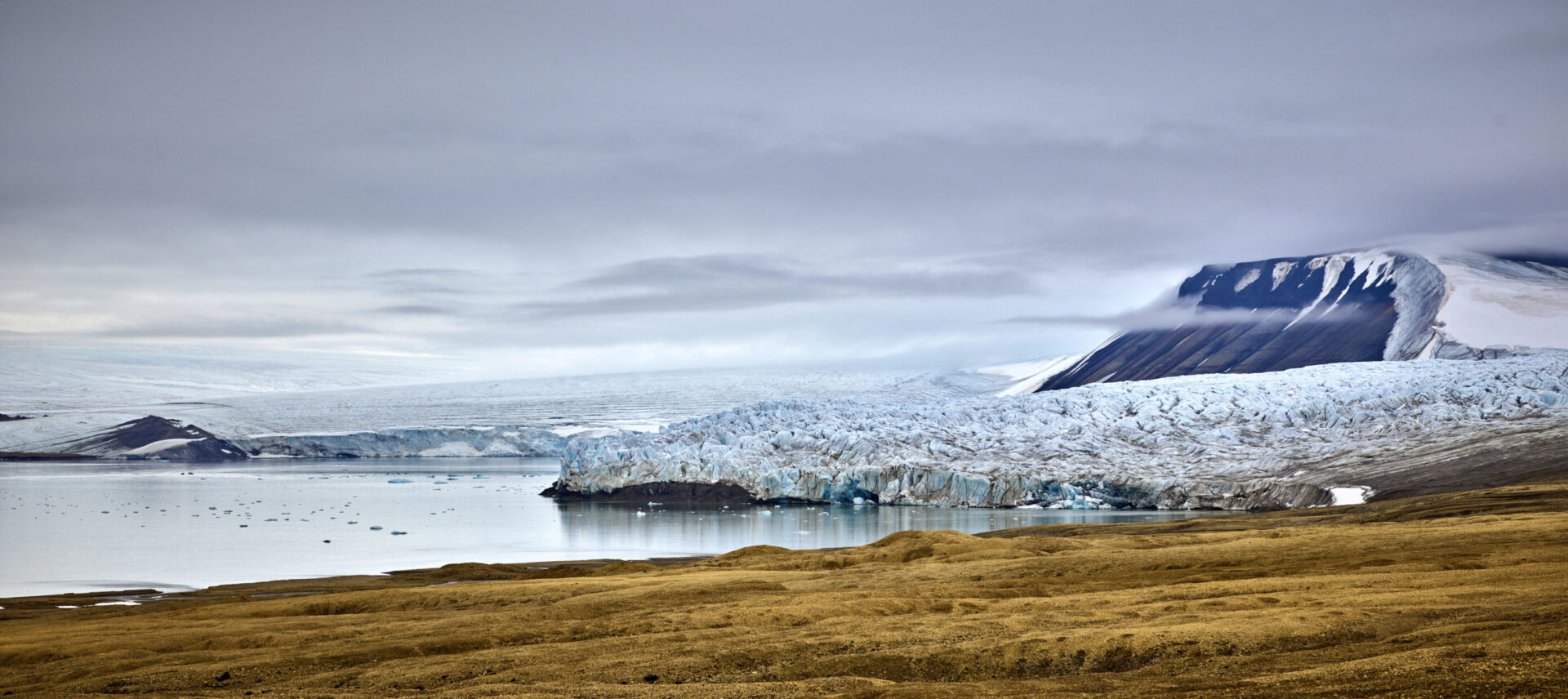
The second largest island in the Svalbard archipelago is completely uninhabited. Situated entirely within the Nordaust-Svalbard Nature Reserve, it is made up of sizable ice caps and tundra.
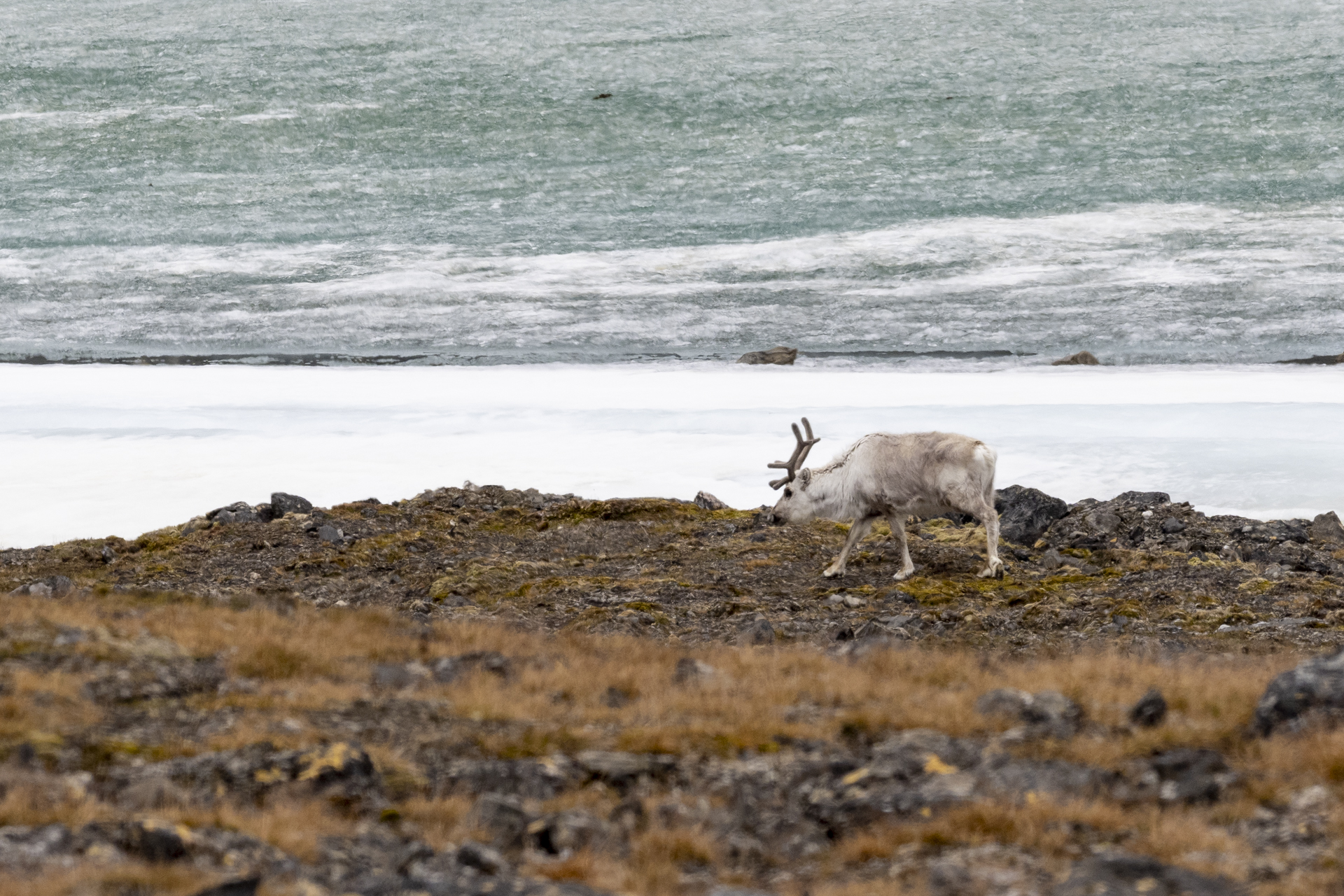
Edgeøya is a Norwegian island situated in the southeast of the Svalbard archipelago. With an area of 5,073 square kilometres, it is the third-largest island in this archipelago. It forms part of the Søraust-Svalbard Nature Reserve and is home to polar bears and reindeer.
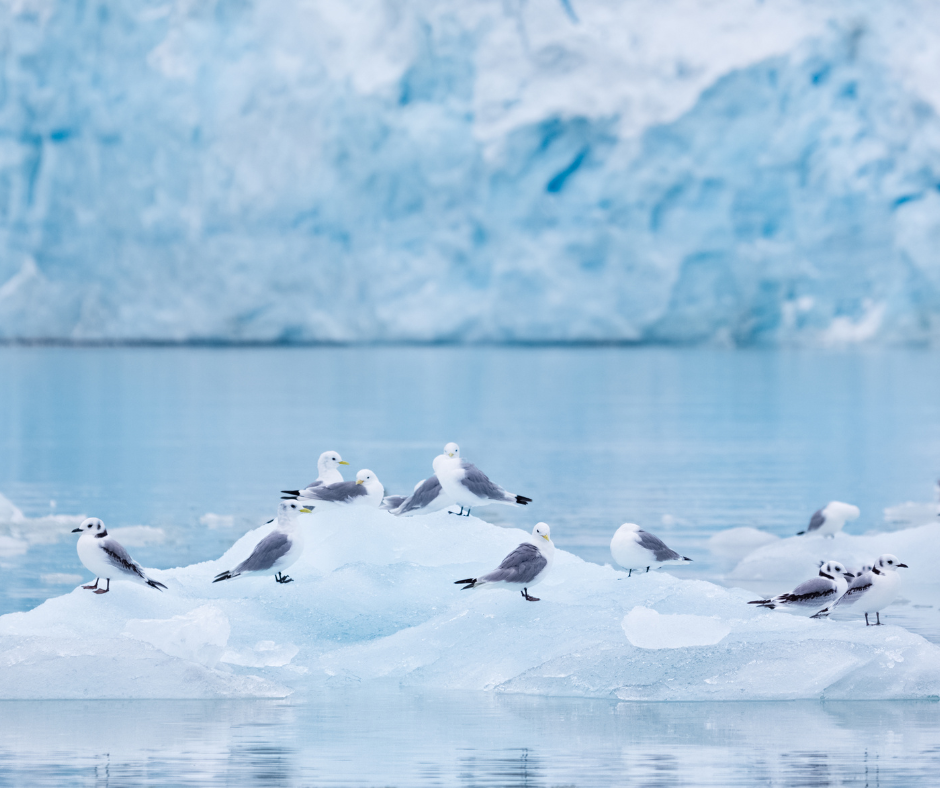
Named after the Dutch explorer Willem Barentsz, almost half of this island in the Søraust-Svalbard Nature Reserve is glaciated. While the island has no permanent human inhabitants, it is a favourite of polar bears and seabirds, especially kittiwakes.
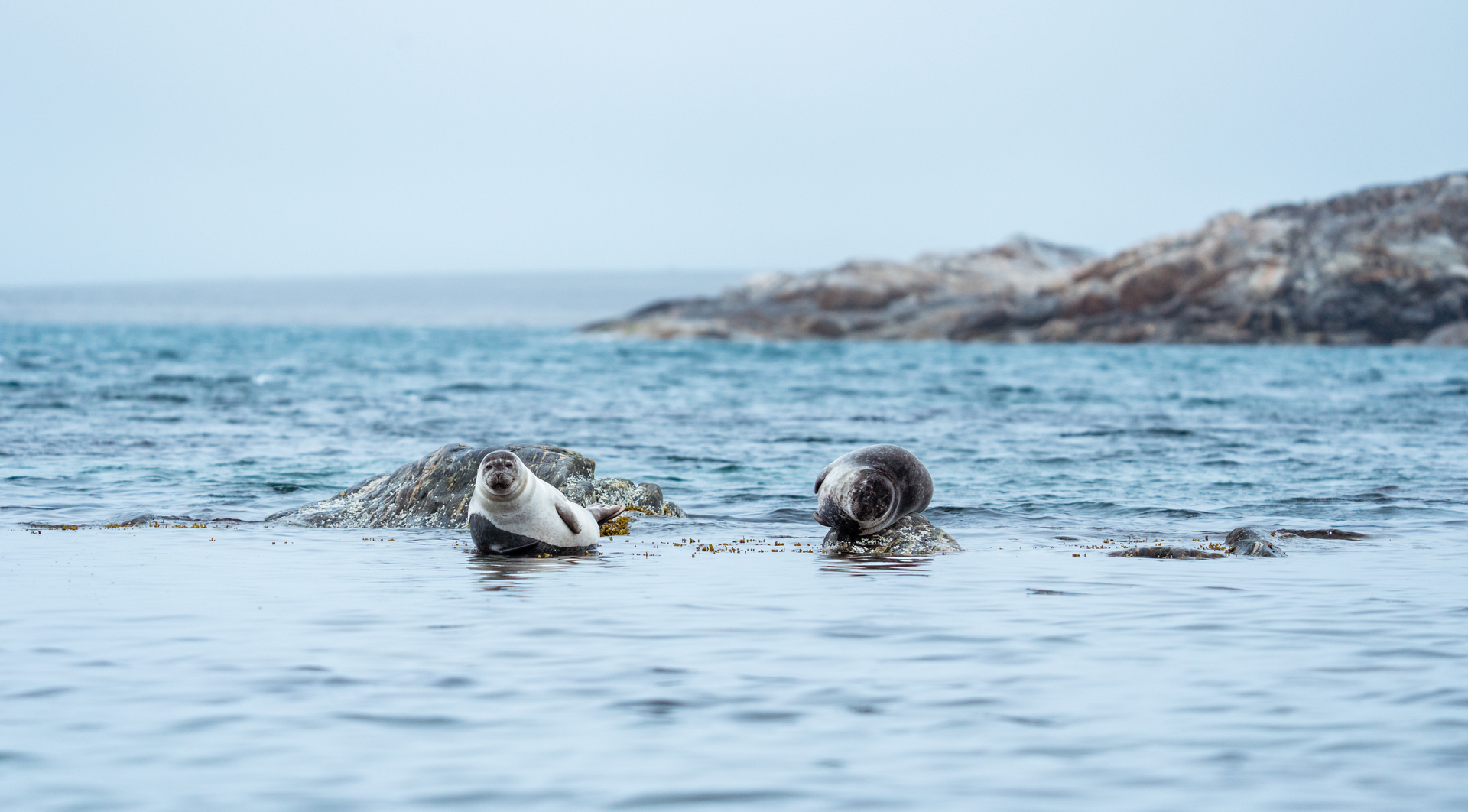
This long island on Svalbard’s west coast and its surrounding seas constitutes Forlandet National Park. It boasts jagged peaks and wild glaciers that remind one of the Antarctic peninsula, alongside vast green plains and polar deserts. The harbour seal is commonly found here.
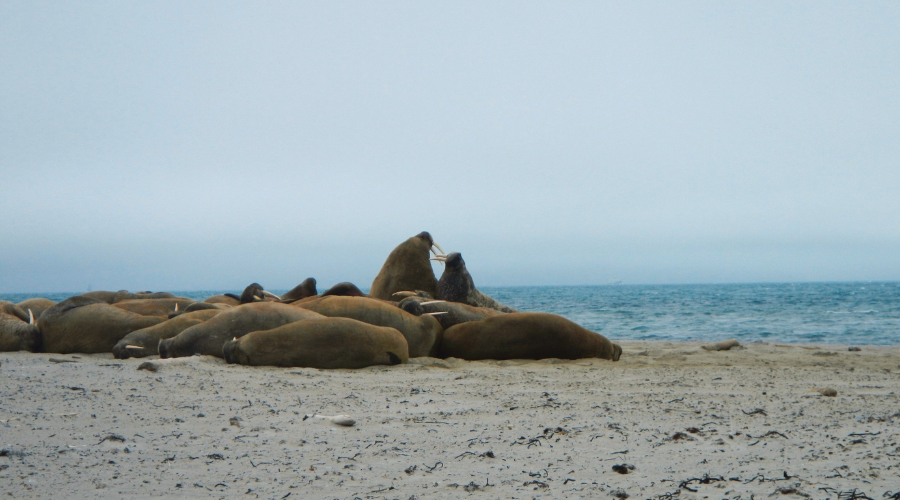
When ice conditions allow, adventure seekers can discover Svalbard’s easternmost island, where polar bears roam and walrus swim. This island is the resting place of Andrée’s Arctic balloon expedition of 1897, which was one of the great mysteries of the Arctic for decades.
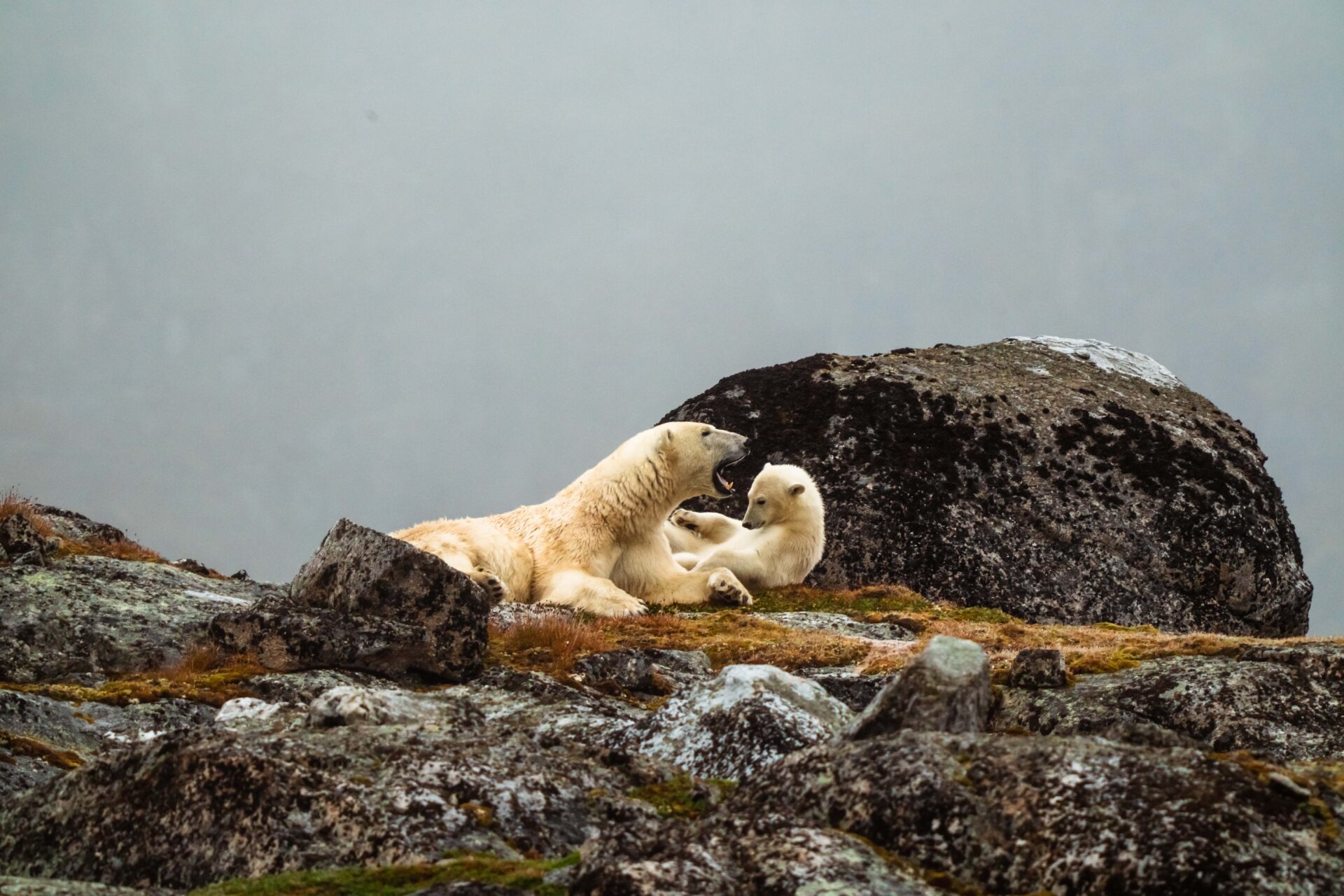
This small island group is part of the Nordaust-Svalbard Nature Reserve and boasts the largest concentration of polar bears in Svalbard. Because of this, there is a ban on traffic to the island, with ships and aircraft not being able to come within 500 metres of the area.
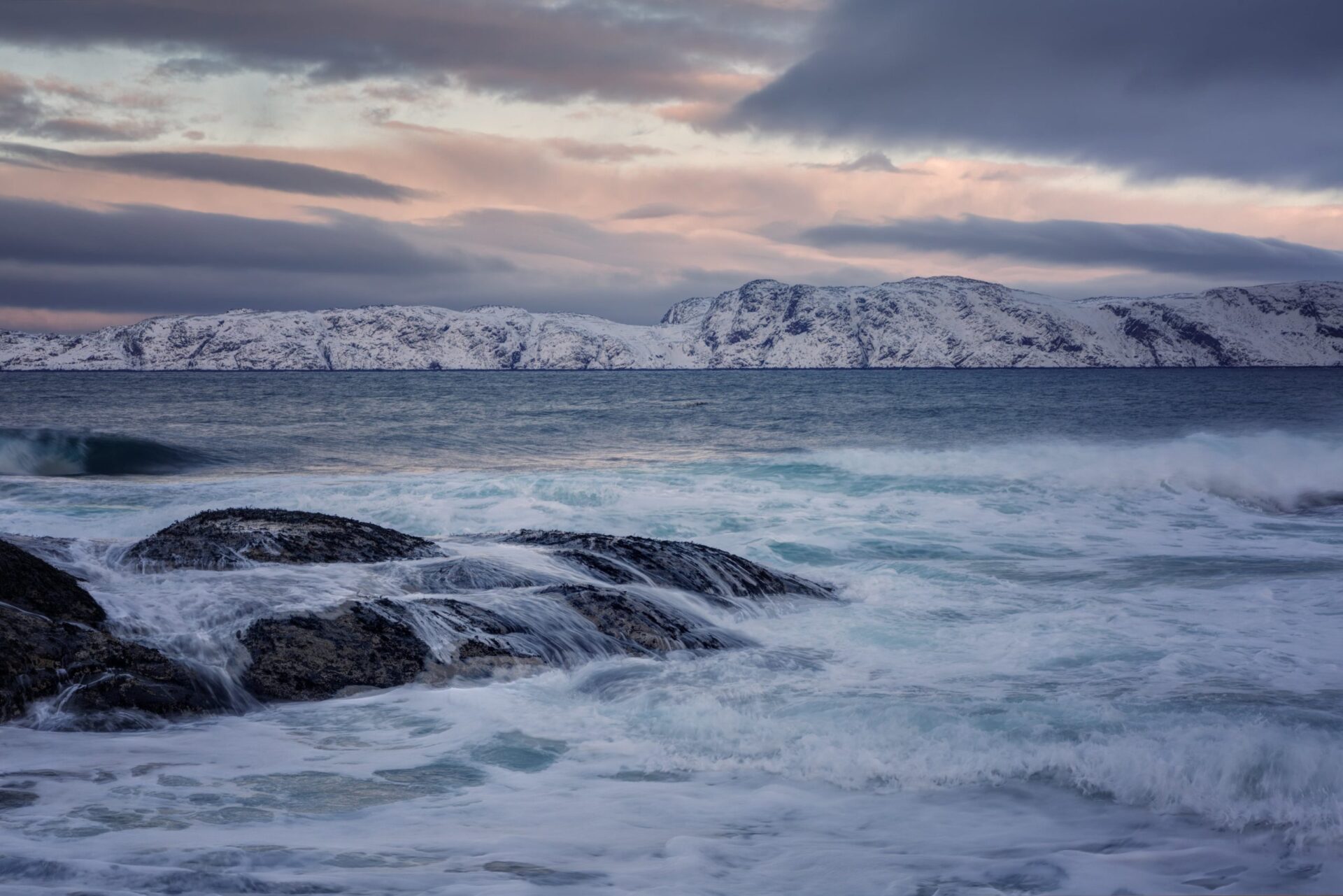
The southernmost island of Svalbard is rarely visited because it can be challenging to access, with no protected bays, rough weather, strong wind and thick fog. While its history revolves around hunting, it is now an important scientific research site and the whole island is a nature reserve with restricted access.
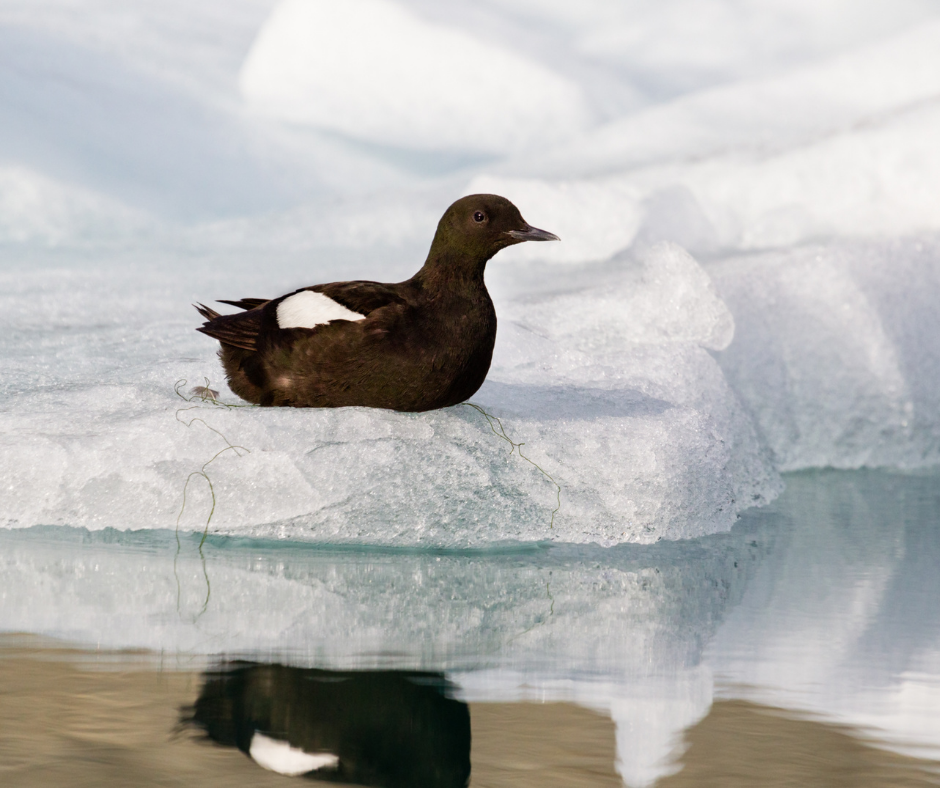
This small, remote island in the far southeast is part of the Southeast Svalbard Nature Reserve. Visiting can be a lucky dip because of heavy ice, fog, rough waters and unprotected beaches. The island has been identified as an Important Bird Area (IBA), supporting breeding colonies of thick-billed guillemots, black guillemots and black-legged kittiwakes.
Visit the Ross Sea & East Antarctica with Aurora Expeditions and explore one of the world’s last wilderness frontiers. Our Expedition Team will guide you on excursions to witness breathtaking landscapes and wildlife encounters unique to Antarctica, fully included in the cost of your expedition. For those seeking even more adventure, we offer optional activities* such as sea kayaking . Our Ross Sea & East Antarctica expeditions offer a perfect mix of comfort and adventure, allowing you to make memories that will last a lifetime.
Bird Watching
Photography
Polar plunge
Trips ashore
Walking
Whale and mammal spotting
Zodiac cruises
Lecture on wildlife, our environment, history and destinations

Sea Kayaking is one of the most exhilarating ways to experience Antarctica, the Arctic and beyond. Sea kayaking holidays in the humbling…
*Optional add-on activities are available on select voyages. They are listed on each itinerary page and additional fees apply.

For travellers who yearn to see the far-flung corners of the world, an Australia to Antarctica cruise is the ultimate
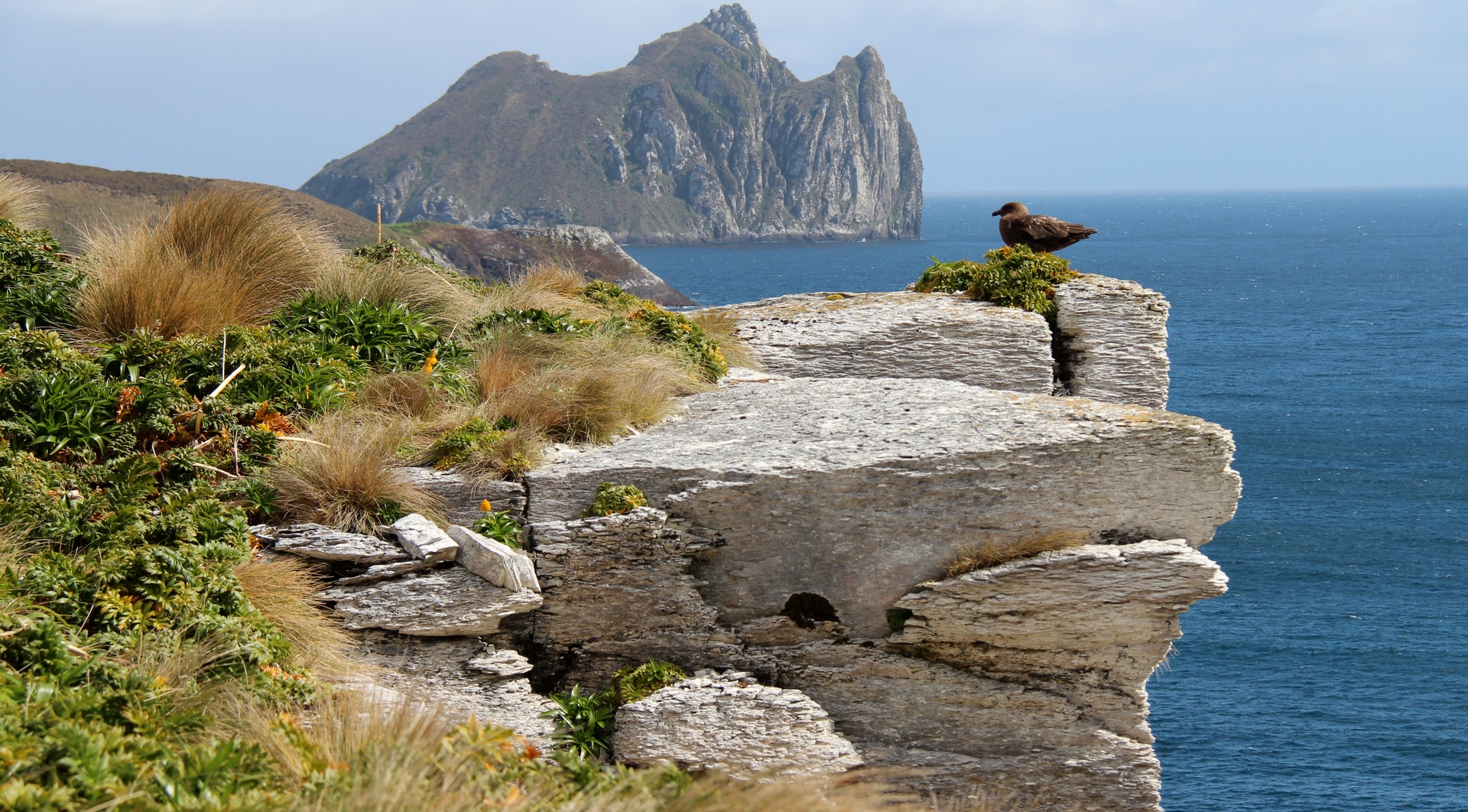
With the thrill of an expeditioner spotting a rare species in the wild, we are excited to announce our new
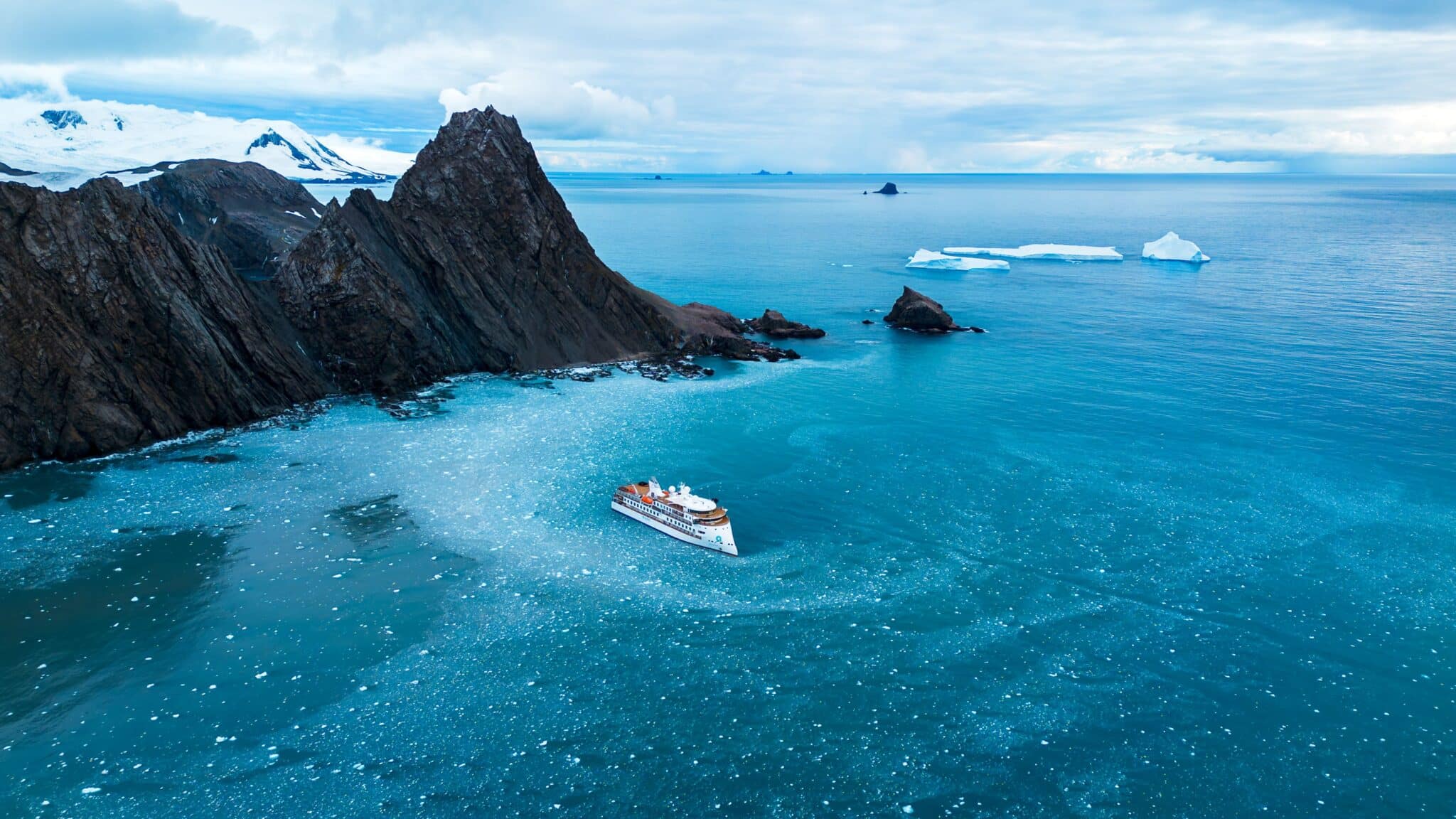
Welcome to our most comprehensive Antarctic season yet! Brace yourself for the adventure of a lifetime during Aurora Expeditions’ highly
A Ross Sea cruise specifically focuses on the Ross Sea region of Antarctica, known for its pristine environment, historical sites, and unique wildlife. It often includes visits to historic huts from early explorers.
Highlights include visiting the historic huts of explorers like Shackleton and Scott, seeing vast ice shelves, spotting unique wildlife, and experiencing the remote and untouched beauty of the Ross Sea region.
Ross Sea cruises are usually longer than other Antarctica cruises, often lasting between 24 to 34 days, due to the remote location and extensive itinerary
You can expect to see emperor penguins, Adelie penguins, Weddell seals, minke whales, orcas, and various seabirds. The Ross Sea region is known for its rich biodiversity.
Our Expedition Team will guide you on excursions to witness breathtaking landscapes, activities may include guided shore excursions, wildlife watching, photography workshops, lectures by experts, and for those seeking even more adventure we offer option activities like sea kayaking.
Our comfortable open seating dining area is where you will share tales of the day and be fuelled with delicious meals cooked by our onboard chefs.
